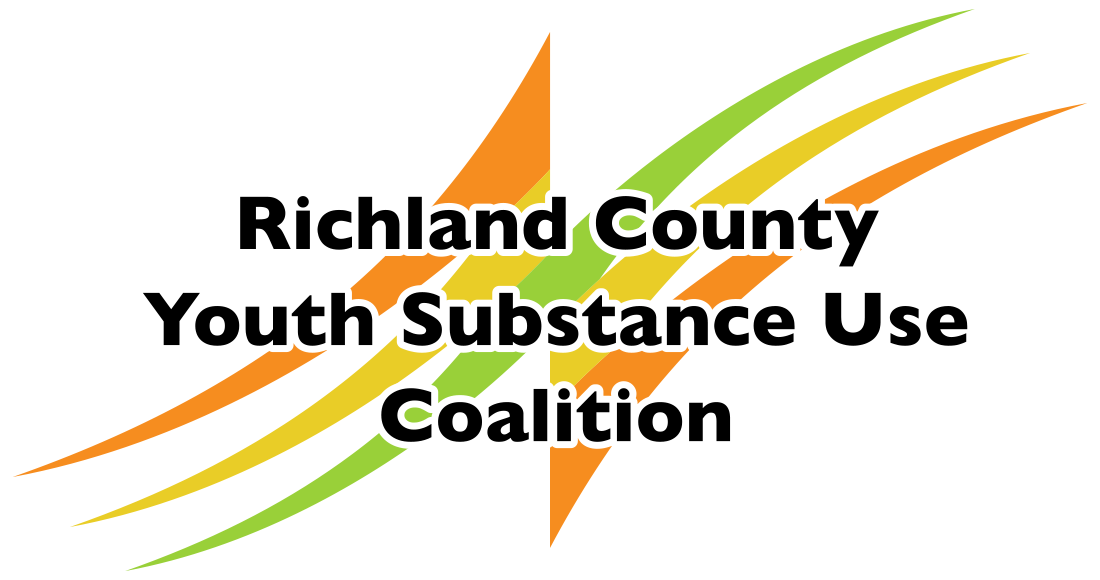MANSFIELD — Julia Long peeled the back off an orange sticker, smoothed it over a can of spiked lemonade and stuck it back in the refrigerator.
Then she took the can next to it and did the same thing, over and over, until a whole row of cans had been labeled with the warning.
Members of the Richland County Youth Substance Use Coalition (RCYSUC) visited two 7-Eleven stores last week in the group’s first Project Sticker Shock campaign.
With permission from store owners, teens and adults marked alcoholic beverages with stickers urging buyers to help prevent underage drinking.
“It is ILLEGAL to give alcohol to a minor,” the sticker read. “Thank you for doing the right thing and keeping our youth alcohol free.”
Project Sticker Shock is a national campaign. Tracee Anderson of Community Action for Capable Youth (CACY) said it’s been nine years since Richland County’s last PSS effort.
Anderson said the campaign is aimed at adults purchasing alcohol, not just store clerks.
“Adolescents typically get their alcohol given to them by somebody else,” she said.
The 2016 Richland County Health Assessment found that 38 percent of all Richland County youth ages 12 to 18 had had at least one drink of alcohol in their life. Seventeen percent of youth reported having an alcoholic beverage in the last month; including 32 percent of 17- and 18-year-olds.
Of those youth who had recently consumed alcohol, 27 percent reported they received the beverage from a parent and 34 percent reported that an older friend, sibling or other adult purchased it.
Long is a ninth grade student at Mansfield Senior High and youth leader with the RCYSUC. She got involved after speaking with members of the coalition during an orientation fair on the first day of school.
The importance of lowering youth substance abuse rates is personal for her.
“I’ve had some family members and friends that have struggled with addiction,” Long said.
Teens may resort to underage drinking as a way to cope with problems at home and mental health issues, Long noted, or because of peer pressure.
McKenna Caseman, a seventh grader at Clear Fork, said she’s learned a lot about the consequences of underage drinking through educational programming at CACY.
“I kind of want to stop everybody else from doing it because I know some high schoolers that get into that stuff,” she said.
Mary Anne Hinkle, an assistant manager at the 7-Eleven on 2264 S Main Street, said she was immediately on board when asked if her store would participate.
“I’d do it again if they asked me,” she said. “Kids nowadays are so influenced by so many things, so if we can prevent something, it was worth it in my opinion.
“I have grandkids and stuff too. They’re still young yet, but I’d hope somebody later on would step up.”
Hinkle said she’s not concerned about losing sales.
“If it means that (customers) are buying less, then they’re doing something with it they should’t have been doing in the doggone first place,” she said.
Ohio law prohibits anyone under 21 from consuming alcohol, unless that person’s parent or legal guardian is physically present and supervising them. Anyone who supplies alcohol to a minor (other than their parent or guardian) can be fined between $500 and $1,000 and imprisoned for up to six months under the Ohio Revised Code.
But legal repercussions aren’t the only reason to avoid supplying alcohol to minors.
Scientists now believe the brain continues to mature and develop until the mid to late 20s. According to the National Institute on Alcohol Abuse and Alcoholism, misuse of alcohol during adolescence and early adulthood can alter the trajectory of brain development, resulting in long-lasting changes in brain structure and function.
The NIAAA also found adults who start drinking before age 15 are at a higher risk for developing alcohol use disorder later in life. One study found that adults ages 26 and older who began drinking before age 15 are 5.6 times more likely to report having AUD then those who waited until age 21 or later to begin drinking.
Underage drinking has also been linked to increased injuries and deaths, as well as impaired judgement and a higher likelihood of perpetrating or experiencing physical or sexual assault.
RCYSUC was founded in 2019 after Richland Public Health received a federal Drug-Free Communities grant. Coalition chair Crystal Davis Weese and program coordinator Gurpinder Deol said they hope to involve more youth leaders and continue efforts like Project Sticker Shock in the future.
For more information on the coalition and how to get involved, visit drugfreerc.org.
Article available on Richland Source
